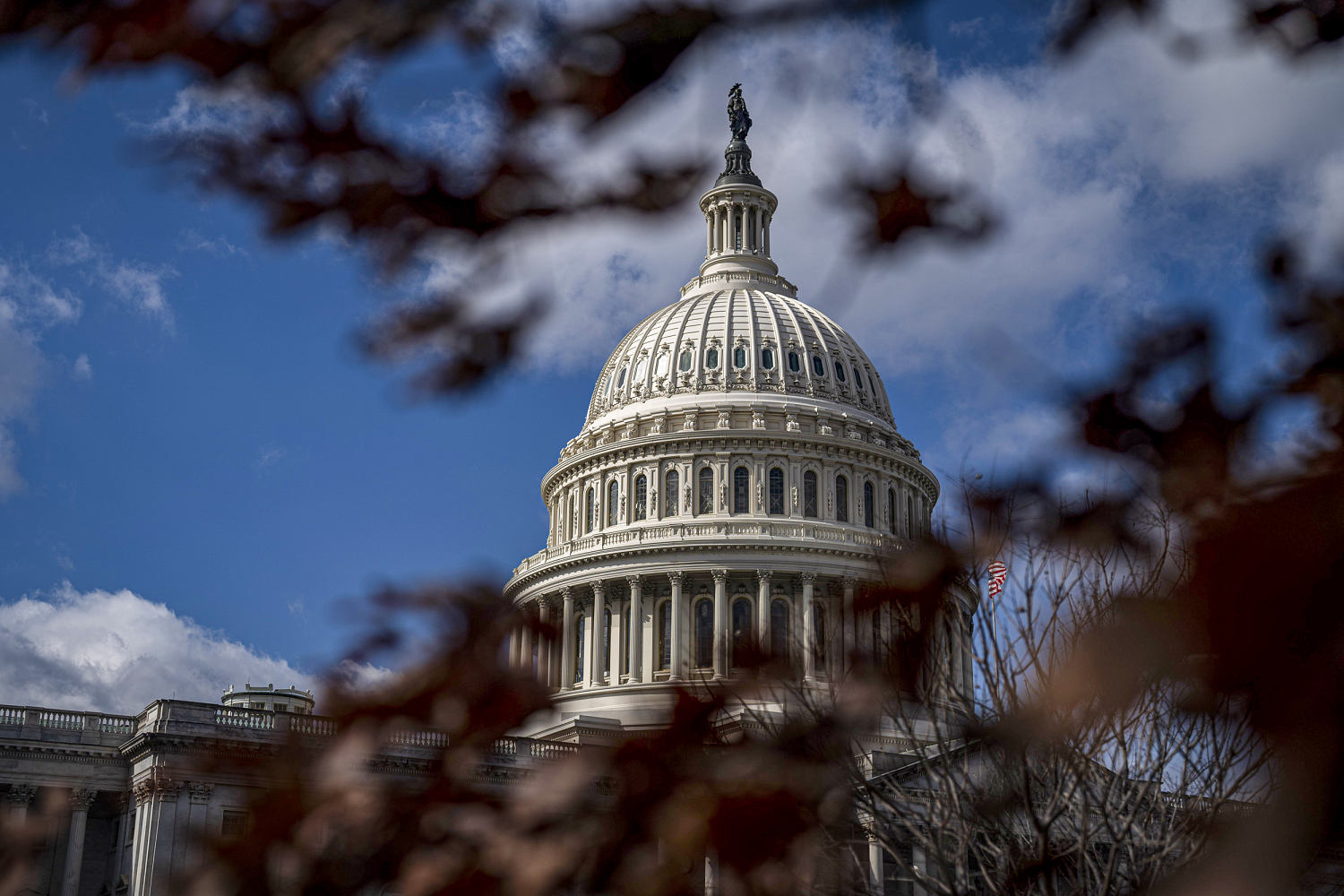Cut climate emissions by ticketing the worst offenders, like speeding drivers

Starting this year, companies importing fuel into the European Union will be asked to provide comprehensive data on the quantity of methane emitted during the fuel’s production. In two years’ time, any failure to meet the bloc’s criteria will trigger a “system of penalties” that could (and is likely to) include “penalty payments or fines” for importers.
This legislation, which my colleagues at Kayrros helped make possible due to our expertise in methane monitoring, will benefit the climate and should be viewed by companies as an opportunity not just to reduce their carbon footprints, but to gain a greater understanding of their operations. That in turn will help them identify inefficiencies and areas for improvement, and ultimately extend their license to operate and outcompete dirtier suppliers.
Elsewhere, however, the climate has fallen down the political agenda.
The United States is now considering abolishing methane emission rules put in place by the previous administration, which had sought to align U.S. methane regulations with European standards to facilitate trade in liquified natural gas. If those regulations are scrapped or watered down, European importers may struggle to meet the EU’s stringent reporting and emissions standards. This conundrum is made all the more difficult by President Trump’s recent statement that if the EU doesn’t want to face crippling tariffs on trade, “the one thing they can do quickly is buy our oil and gas.”
Methane, it’s worth reminding ourselves, frequently leaks during fossil fuel production and delivery and is particularly damaging to the environment. Over 20 years, it heats the atmosphere 84 times more powerfully than carbon dioxide. On current trends, it is projected to account for half of global warming in the next two decades. If the EU, keen to avoid a trade war, rolls over on methane regulations, we’ll need to change tack to bring down methane quickly.
The best way to do this is to narrow the scope of the regulations and target so-called “super-emitters” — intermittent sources of methane and other greenhouse gases that release disproportionately large amounts of emissions compared to typical sources.
These emissions are so large that, thanks to recent scientific advances, they can easily be seen from space. Exact definitions vary, but most agree that super-emitters refer to emission events of several tons of methane per hour, and include sources like oil and gas facilities, landfills and large agricultural operations. In the oil and gas industry, large amounts of methane emissions are often the result of leaks, equipment failures or inefficient and outdated operational practices.
This makes super-emitters, as opposed to more diffuse and smaller leaks, also remarkably easy and cost-effective to fix. And because they account for a large share of overall emissions and are so hugely concentrated, the cost-benefit of tackling them is a no-brainer — the payoff in terms of overall climate benefits and avoided greenhouse gases is phenomenal.
Indeed, holding methane super-emitters to account, as opposed to scrutinizing the entire lifecycle emissions of fossil fuels, would be a much more straightforward and effective policy — and a much less burdensome one for both industry and government — than the more arcane rules that the United States is set to tear up, and that the EU aims to implement.
While the EU has set lofty and commendable climate targets, its current approach to methane regulations is overly complicated. Under the current plans, it is the EU that bears the responsibility of identifying, locating and penalizing companies responsible for imported methane emissions. That is inefficient and laborious, perhaps to the point of elusiveness.
Instead, businesses themselves should be required to make sure they do not cause any super-emitter event. If they fail to do this, then they should be subject to fines, just as individual drivers who break the speed limit are legally bound to pay a financial penalty. If for one reason or another a driver disagrees with the charge that they’ve broken the speed limit, then they’re within their rights to contest the fine and provide evidence that no wrongdoing has occurred. Likewise, businesses fined for super-emitters should have the right to argue that they didn’t break any rules and present their reasons for thinking that.
This behooves those companies eligible for the EU’s methane laws to monitor their emissions closely on an ongoing basis, for fear of falling foul of the rules and being slapped with a hefty fine. The data they need to do that can be effectively, cheaply and unobtrusively gathered using Earth Observation technology, which combines satellite imagery with artificial intelligence, machine learning and geoanalytics, to provide a comprehensive view of what’s happening on the ground across a business’s operations — and then, ideally, interpreted by environmental intelligence professionals, who can recommend sustainable and effective changes informed by that business’s baseline emissions.
The European Space Agency showed last year that the elimination only of super-emitters detected from space — something eminently practicable and cost-efficient — would be equivalent in emissions terms to the annual carbon sequestered by 11 billion tree seedlings grown for 10 years. Put differently, it would be like removing 160 million cars from the road or the equivalent of France's total carbon footprint. That’s the opportunity that lies in wait.
If the EU is going to relax its rules around methane to preserve good relations with the U.S., then another effective strategy is needed to tackle harmful methane emissions. The simplest and the best is to take an approach that has worked brilliantly to improve road safety around the world: slap the negligent emitters with a fine.
Antoine Rostand is president and co-founder of global climate technology company Kayrros.
-
Biogen beats estimates on cost cuts and new drugs like Leqembi, but profit outlook falls short
Biogen expects Leqembi and new rare disease and depression treatments to help offset revenue lost from multiple sclerosis products.CNBC - 3h -
Flight detours around Ukraine war mean 1% rise in aviation emissions
Yahoo News - 3h -
Russia's War Is Driving Up Emissions by Forcing Planes to Reroute
Yahoo News - 9h -

The great climate disconnect
New attempts to prolong the fossil fuel era have come at precisely the wrong timeFinancial Times - 14h -

Fed Rate Cuts Are Looking Less and Less Likely for 2025
The January jobs report and inflation concerns have pushed back bets for lower borrowing costs.Inc. - 2d -

'Support' needed for NI drivers to switch to EV
Support is needed to encourage Northern Ireland drivers to switch to electric vehicles, an EV driver said.BBC News - 2d -

Driver cut free after crash with highways vehicle
Firefighters say the highways vehicle was stationary within a closed work zone when it was hit.BBC News - 3d -

U.S.A.I.D. Workers Brace for the Worst
A judge halted parts of the Trump administration’s plan to shut down the agency. A verdict might not come for weeks or even longer as thousands are left in limbo.The New York Times - 3d -

WATCH: Deserving superfans surprised with tickets to Super Bowl
“GMA” surprised Toya Mathis, a colon cancer survivor and now volunteer with the American Cancer Society, with tickets to Super Bowl LIX.ABC News - 4d
More from The Hill
-

The Pentagon needs a budget cut, not a spending spree
Lawmakers are pushing to increase Pentagon spending by up to $500 billion, but this would accelerate our national debt and fail to address wasteful programs and inefficiencies.The Hill - 40m -

Democrats accuse GOP of reverse Robin Hood 'scheme'
House Democrats wasted no time on Wednesday bashing the Republicans’ newly unveiled budget proposal, accusing GOP leaders of attempting a reverse Robin Hood “scheme” that will transfer trillions of ...The Hill - 40m -

DOGE panel Democrat jabs Musk by invoking Greene's use of inappropriate photo
Rep. Robert Garcia (D-Calif.) knocked billionaire Elon Musk in the first Delivering on Government Efficiency subcommittee hearing Wednesday, while referring to the tech mogul as a “d--k.” Garcia ...The Hill - 43m -

Your closed Party City may soon turn into one of these familiar stores
What used to be your local Party City store may soon be selling books, recliner chairs, cowboy boots or discount merchandise.The Hill - 59m -

Murkowski backs Kennedy for HHS secretary despite 'concerns'
Sen. Lisa Murkowski (R-Alaska) announced she will support Robert F. Kennedy Jr.’s bid to head the Department of Health and Human Services (HHS) despite having “concerns” about his views on vaccines ...The Hill - 1h
More in Politics
-

Trump says he spoke with Putin and Zelenskyy in separate calls
The White House has confirmed that President Trump discussed negotiations to end the war in Ukraine during separate phone calls with Russian President Vladimir Putin and Ukrainian President ...NBC News - 24m -

The Pentagon needs a budget cut, not a spending spree
Lawmakers are pushing to increase Pentagon spending by up to $500 billion, but this would accelerate our national debt and fail to address wasteful programs and inefficiencies.The Hill - 40m -

Democrats accuse GOP of reverse Robin Hood 'scheme'
House Democrats wasted no time on Wednesday bashing the Republicans’ newly unveiled budget proposal, accusing GOP leaders of attempting a reverse Robin Hood “scheme” that will transfer trillions of ...The Hill - 40m -

DOGE panel Democrat jabs Musk by invoking Greene's use of inappropriate photo
Rep. Robert Garcia (D-Calif.) knocked billionaire Elon Musk in the first Delivering on Government Efficiency subcommittee hearing Wednesday, while referring to the tech mogul as a “d--k.” Garcia ...The Hill - 43m -

Cuts to foreign aid scramble young public servants' career plans
Entry-level workers at USAID, other federal agencies and government-backed nonprofits are filing for unemployment and applying to private-sector jobs.NBC News - 45m

